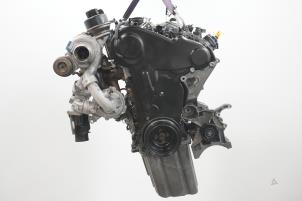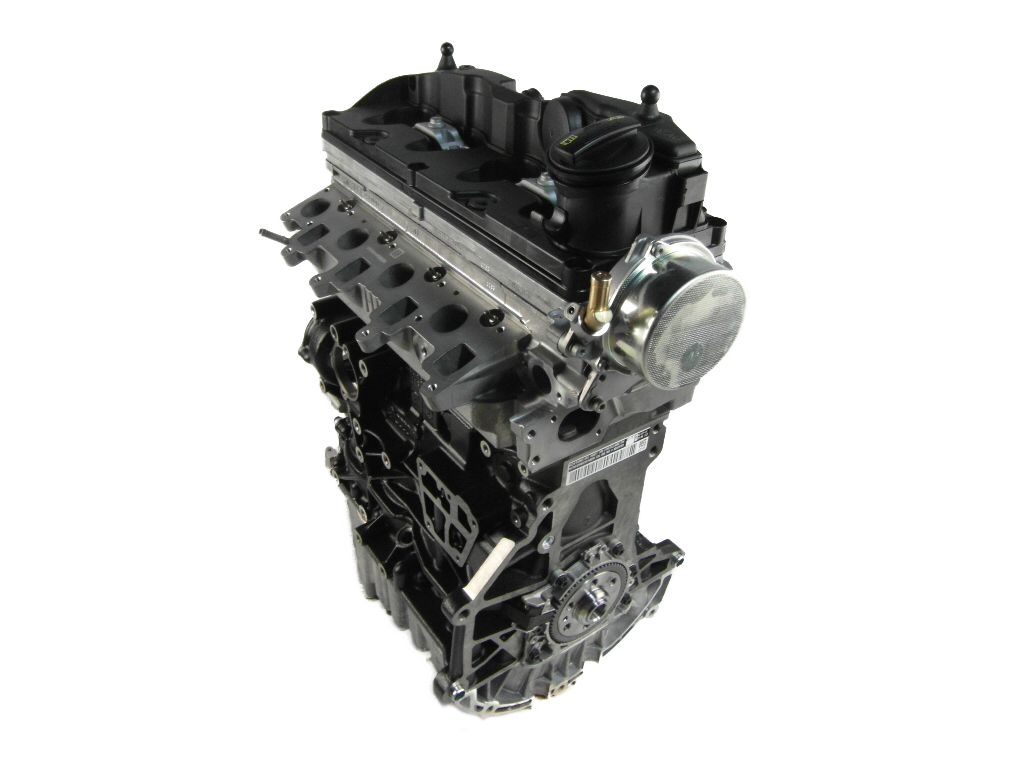Essential Factors To Consider and Tips for Picking the Right Engine for Your Demands
Choosing the right engine is a complex decision that requires mindful consideration of various variables to ensure ideal efficiency for your specific needs - amarok engine for sale. Comprehending your designated application is critical, as the needs of industrial, industrial, or leisure use will significantly affect your selection. Additionally, evaluating vital specs such as torque, horse power, and gas efficiency, along with upkeep needs and spending plan restraints, will assist you toward a lasting financial investment. Nonetheless, the complexities of engine selection prolong beyond these fundamentals, prompting a more detailed assessment of essential components that can eventually influence your fulfillment and success.
Determine Your Objective
Establishing your function is an essential primary step in selecting the best engine for your demands. Comprehending the details application you want will guide your decision-making procedure and make certain that you pick an engine that straightens with your functional requirements. Whether you require an engine for an industrial vehicle, industrial equipment, or a recreational job, each situation needs various performance qualities and capacities.
Take into consideration the atmosphere in which the engine will certainly operate. Will it undergo hefty tons, severe temperatures, or long term usage? Assessing these aspects will certainly assist you determine the needed power output, gas efficiency, and resilience needed to satisfy your objectives.
In addition, consider the long-term implications of your selection. Budget plan restraints, maintenance requirements, and schedule of parts are important factors to consider that will certainly impact your total fulfillment and operational effectiveness.
Eventually, verbalizing your objective will certainly streamline the option procedure and empower you to make an informed decision. By clearly defining your purposes, you can assess prospective engines better and select one that not only satisfies your existing needs yet likewise supports your future goals.
Evaluate Engine Requirements
Once you have plainly verbalized your purpose, the following action is to assess engine specifications. This procedure entails a thorough assessment of numerous technological information that can significantly impact efficiency and viability for your meant use.
Begin by examining the engine's horse power and torque rankings. Horsepower is vital for determining the engine's capability to carry out work, while torque is vital for comprehending exactly how well it can handle hefty tons or acceleration. In addition, take into consideration the engine displacement, as it typically correlates with power result and efficiency.
Following, take a look at the engine typeâEUR" whether it is a gas, diesel, or alternative fuel engineâEUR" as each type has unique qualities and applications. Focus on the engine's setup (e.g., inline, V-type), as this can affect dimension, weight, and overall efficiency.
One more essential facet is the engine's air conditioning system, which can influence integrity and maintenance demands. Evaluate the producer's online reputation and service warranty offerings, as these can give insights right into lasting efficiency and assistance. Completely assessing these specifications will help ensure that you select an engine that aligns with your specific demands and functional goals.
Consider Fuel Effectiveness
Fuel effectiveness is a crucial aspect to think about when picking an engine, as it directly affects operational expenses and environmental sustainability. An engine's gas efficiency is normally determined in miles per gallon (MPG) for automobiles or in details gas intake (SFC) for aircraft and marine engines. Higher gas performance not just reduces the quantity of gas consumed yet likewise decreases greenhouse gas discharges, making it a responsible option for eco-conscious consumers.
When examining engine options, it is necessary to evaluate the driving conditions and intended use. Engines enhanced for highway driving may exhibit much better gas performance compared to those made for stop-and-go web traffic. In addition, think about the engine's technology, such as turbocharging or crossbreed systems, which can considerably improve gas effectiveness.

Assess Upkeep Demands

Some engines might require even more regular oil changes, filter replacements, or specialized maintenance, which can affect your functional downtime. Engines with extensive appeal usually have much better components accessibility, reducing lead times throughout repair work.
One more critical element is the technological expertise needed for upkeep. Some engines might demand specific training for service technicians, which might restrict your alternatives for solution suppliers. Analyze whether the engine's layout permits for simple click here for info access to elements frequently requiring upkeep, as this can significantly affect labor prices.
Spending Plan Your Investment
Comprehending upkeep requirements is just one facet of picking the appropriate engine; monetary considerations play a similarly vital role (amarok engine for sale). Developing a clear spending plan is essential, as it influences not only the preliminary acquisition cost yet likewise long-term functional expenses
When budgeting, think about both the ahead of time prices and continuous expenditures such as fuel efficiency, upkeep, and possible repairs. A relatively inexpensive engine might incur greater prices in time as a result of poor fuel economic situation or frequent maintenance needs. Furthermore, examine the availability and price of spare components, as well as the service warranties provided by producers, which can provide monetary security versus unanticipated expenses.
It is additionally wise to consider potential funding options or leasing setups, which might relieve instant financial worries. Balance your wish for advanced features with your budget constraints, ensuring that you spend in an engine that fulfills your efficiency requires without jeopardizing economic security.
Inevitably, an all-round budget will encourage you to make enlightened decisions, aligning your engine selection with both your economic capacities and operational requirements, bring about a much more sustainable financial investment in the lengthy run.

Conclusion
In conclusion, selecting the ideal engine demands a comprehensive understanding of details demands and applications. Careful examination of engine requirements, fuel performance, and maintenance demands is essential for notified decision-making. Additionally, establishing a detailed spending plan makes certain that both continuous and first expenses are manageable. By adhering to these considerations, people and organizations can make a sustainable investment that straightens with their functional objectives and efficiency assumptions, ultimately enhancing overall performance and performance.
Gas effectiveness is a critical aspect to take into consideration when choosing an engine, as it you could look here straight influences functional prices and environmental sustainability. An engine's gas efficiency is usually determined in miles per gallon (MPG) for lorries or in specific gas consumption (SFC) for airplane and aquatic engines. Diesel engines normally offer far better fuel efficiency than gas engines. Eventually, choosing an engine with a strong emphasis on fuel performance can lead to considerable long-lasting financial savings and add positively to ecological initiatives. Careful analysis of engine specifications, gas effectiveness, and maintenance demands is crucial for notified decision-making.